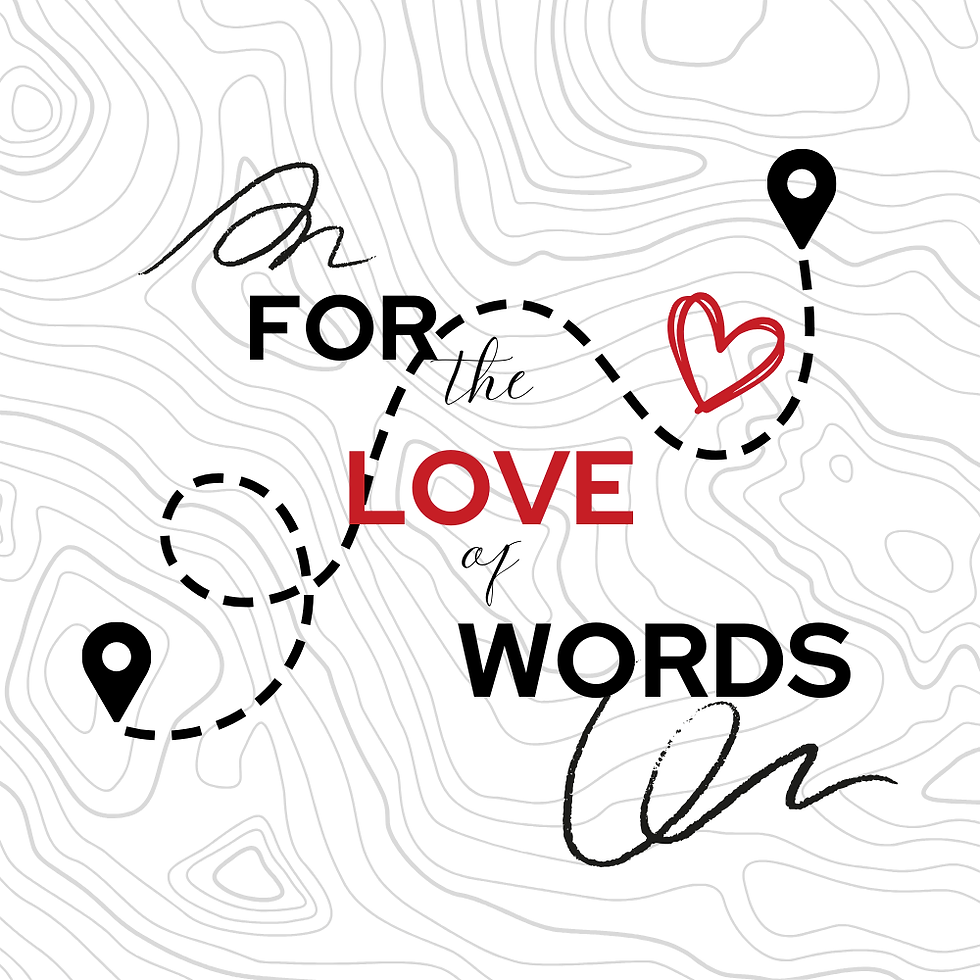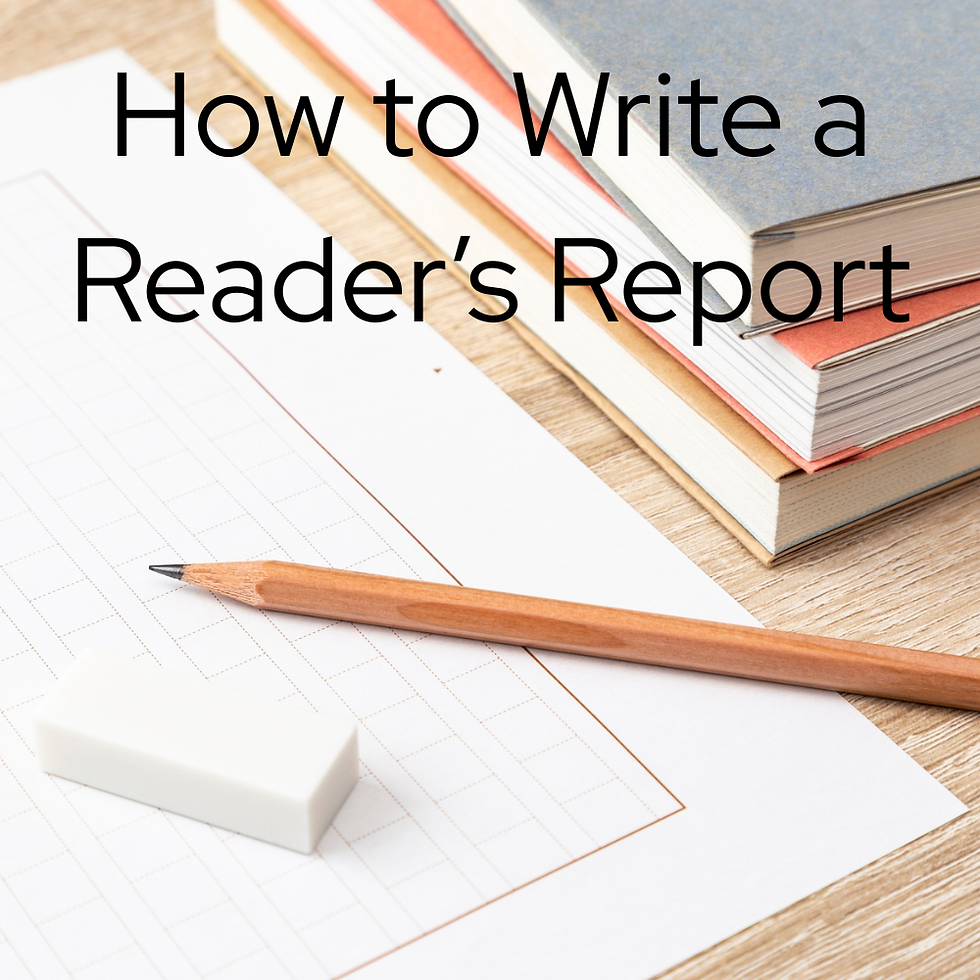For the Love of Words
- Felipe Tazzo
- Sep 30, 2025
- 5 min read

It’s very easy to fall in love with words. Single ones, lost in the winds of our inspiration, or even securely latched to a grand flowery sentence. I have met many a word in my time because, well, these are still my times. I’m vintage model, but still functioning. And also because I dabble in other languages.
As with many of the contributors to Writer’s Workout, English is not my first language. I am Brazilian and I have studied English enough to feel comfortable to call myself a writer in both hemispheres. I’ve also taken a quick peek at French and scratched the surface of Spanish.
Conclusion: there are a whole lotta words out there. And some of them are outright endearing.
Alas, the love is fleeting. It was never to be. It’s time to let go as we trot into the English-speaking literary world and with some luck, its markets, too.
This one is for us, who have English as a second, third, fourth language, and want in.
Thoughts, emotions and cultural traces sprinkle the way we speak and write but chances are, this sparkle fades during a translation. It’s even possible that it turns into something else entirely and we deliver a very different message altogether.
Here’s an example: "gargalhar".
That’s a verb in infinitive form and it almost translates to English as “to laugh”.
It happens, though, that "gargalhar" is not just to laugh. It’s to laugh out loud in a very loose and somewhat violent way. As when a crowd erupts in loud laughter. The ones that bring tears to our eyes and we fold in half to catch a breath. Yes, it packs that much happiness. Or that much demeaning ridicule, depending on context.
Perhaps "gargalhar" could be translated as “to guffaw”, which approaches on the meaning but it doesn’t deliver the same emotional charge of what happened to our characters and it loses the sense and style. “Guffaw" feels dated and stale. The Portuguese gargalhar is a very common, everyday-use verb. It’s way simpler, so it doesn’t imply formality.
Also, it comes with Easter eggs in it! Notice how there are three syllables with As, mimicking the sound of laughter. It’s whimsical. Quite different from “cackle" or “chortle”, which mean the same.
Can you imagine a tear-eyed seven-year-old run to mom’s lap saying the class guffawed at the teddy bear in show-and-tell? Or “they cackled at me”. Doesn’t quite fit the character, does it?
This is, obviously, the greatest danger of looking for translation tools, specially A.I.. It can’t be denied that those toys are getting fancier by the day. Each update promises more and more fidelity, more resources and they do deliver (somewhat). Trouble is, translation is not the time to be "efficient". Google translator and AI generators were not engineered to be poetic, they were designed to deliver results. To help you, user, to get a point across... quickly.
And oh, boy, is there a difference between getting your point across and serving your brisk and refreshing point under warm sunset in a cozy little café by the sea framed with the sound of breaking waves while a broken-hearted man plucks the string of a cavaquinho.
Throw that into your Google translator, I dare you.
So the words can be electronically translated but when they are, they lose their style. The goods are there, but the packaging loses its decoration.
Ok, we can work with that, because of course translators and generators don’t translate word-for-word. That would lead to hilarious results, by the way. And those tools don't assess sentence-to-sentence either, because that would also lead to a disconnected text (And who knows how that thingmabob works, after all!).
But we think sentence-to-sentence and word-to-word. And that makes for disconnected text with unstyled words.
And by now, brazucas, tugas, canucks, enfants de la patrie and hermanos are all thinking to themselves how clumsy we must sound when directly translate our work into English.
Yes, sorry sons of a Latin language, we do. Borderline AI-level clumsy.
Translation is almost as much an art form as writing is. We do want our reader to feel in a determined ambience when telling them what’s happening. It’s is very different saying “Juliet is the sun!” to saying “Juliet is da bomb.” Different vibes, right?
Translation is a recreation of your story. It’s not substituting words. A translator has to have the sense of what’s happening in the whole to play to the same tune but with a completely different instrument. And no, there will not be an ideal solution. There will be possibilities and there will be different interpretations of what the author has said. Different translators will bring different solutions to what the story is proposing, so as to engage the reader they way they were engaged themselves. And a good translator will even take into consideration things like when the text was written, in what social or political context, the writer’s objectives, and so on.
As we all know, Shakespeare wrote what are now dense, emotionally-packed, beautifully intricate poems that pretty much shaped all of literature. He invented words to express things he wanted when the available language could not reach it. Those eternal classics, however, were delightful pieces aimed at the common folk. It was an afternoon entertainment. Now, how will a translator go about making Shakespeare know worldwide? Would you translate Shakespeare using words today's folk would understand? Or use words from another language but in the same time period?
There are no right answers there.
“Traduttore, traditore” is a famous Italian saying, that once translated, expresses exactly what it means: “Translator, traitor”. This states that despite the best of all intents and the hardest of all works, a translator will change the text. They will betray it. In Italian, both words have three syllables and a musical ring to it. When translated the saying loses a syllable and, therefore, some of its rhythm. Also, pronunciation in Italian makes both words sound much more similar than the two English words do themselves, losing some of the humor.
Perhaps if we translate it to “translator, the traitor” it might retain it’s groove?
Hard choices to be made.
But unless you are pursuing a career in translation, your focus is to find enough English or good enough tools to access the English market and/or community. Luckily it does not require a new profession to do it. It requires more reading. In English, obvs.
Don’t rewrite into English. Write from English.
That’s why the love for words is fleeting: exact words and sentences are very hard to fit into the flow of a different language. They’ll betray you and leave you hanging. Focus on your idea and the sense you are trying to convey and go grab that cadence from English-speaking authors. There’s no shame in that, it’s not plagiarism: it’s expressing your ideas in the context of the public you wish to be read. Language is not an assortment of words, it’s a mix of thoughts, context, emotions.
Read extensively. Go get your vocabulary and syntaxes from English texts. Get familiar with how phrases are built to express the ideas you came up with. You’ll very soon not need it anymore. It’s like learning to dance, where you have to watch every step at first, but soon your feet are tapping away on their own, and you're in the groove.
Oh, and on the subject of loving a word, here’s another I adore: saudade.
Go Google that.
About the author: Felipe Tazzo was once a monster hunter and an alchemist, but he got a real good price on his sword on ebay so now he is a writer and comic book writer with 4 published books, a few comic books and some anthologies. It's just as dangerous a job.
.png)



Comments